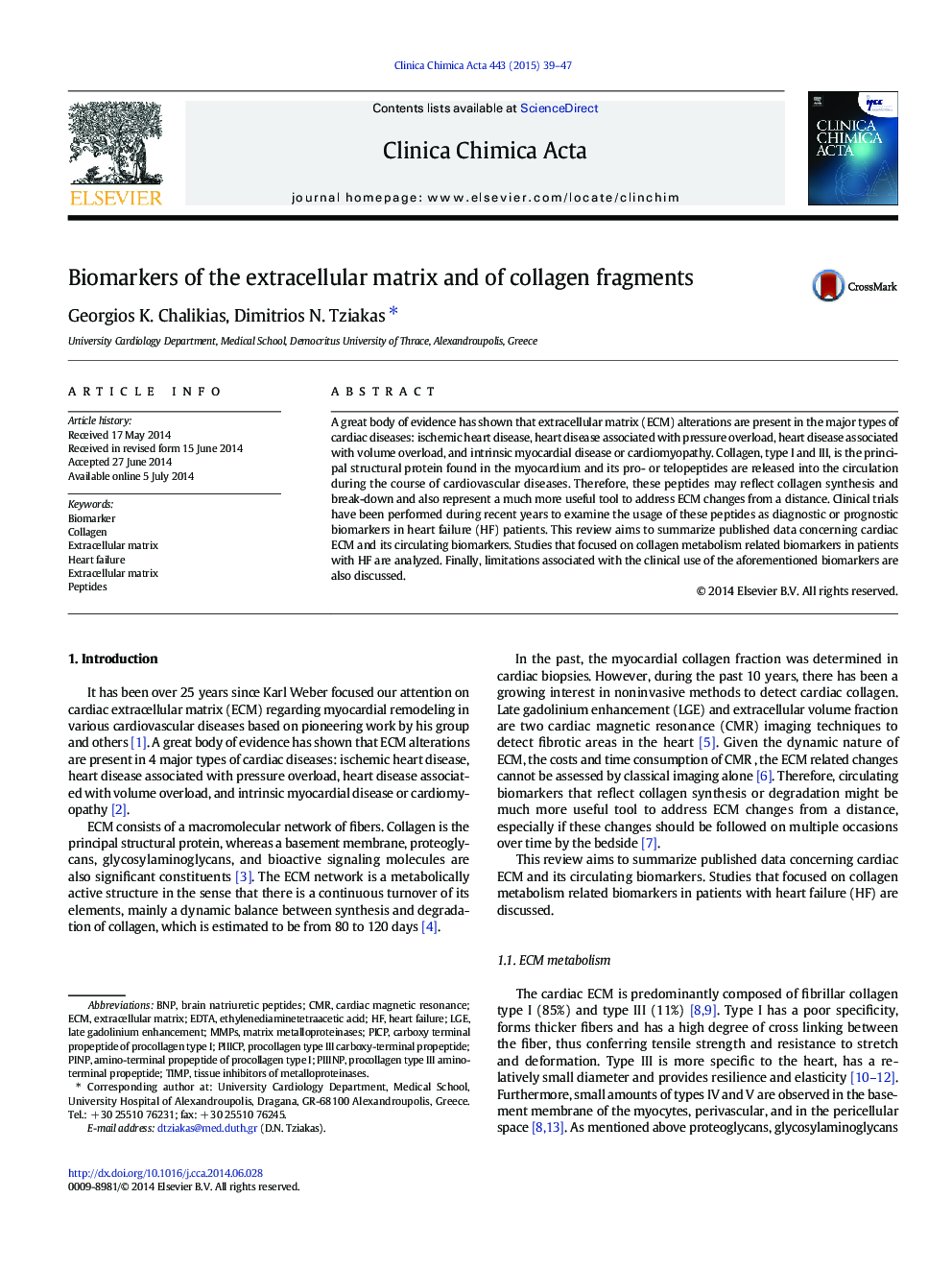| Article ID | Journal | Published Year | Pages | File Type |
|---|---|---|---|---|
| 1965272 | Clinica Chimica Acta | 2015 | 9 Pages |
•Extracellular matrix alterations are present in all spectrum of cardiovascular diseases and especially heart failure•Collagen, is the principal protein found in the myocardium and its pro- or telopeptides are released into the circulation•These peptides reflect collagen synthesis and break-down and represent a useful tool to address ECM changes from a distance•A number of major limitations remain that weaken the clinical usefulness of these circulating biomarkers
A great body of evidence has shown that extracellular matrix (ECM) alterations are present in the major types of cardiac diseases: ischemic heart disease, heart disease associated with pressure overload, heart disease associated with volume overload, and intrinsic myocardial disease or cardiomyopathy. Collagen, type I and III, is the principal structural protein found in the myocardium and its pro- or telopeptides are released into the circulation during the course of cardiovascular diseases. Therefore, these peptides may reflect collagen synthesis and break-down and also represent a much more useful tool to address ECM changes from a distance. Clinical trials have been performed during recent years to examine the usage of these peptides as diagnostic or prognostic biomarkers in heart failure (HF) patients. This review aims to summarize published data concerning cardiac ECM and its circulating biomarkers. Studies that focused on collagen metabolism related biomarkers in patients with HF are analyzed. Finally, limitations associated with the clinical use of the aforementioned biomarkers are also discussed.
